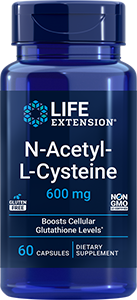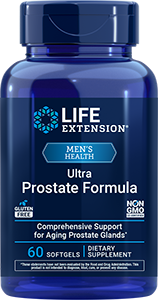
Newsletter
Newsletter
Rheumatoid arthritis patients taking vitamin E report less pain and swelling

Intake of vitamin E helped reduce joint discomfort, water retention and stiffness in people with rheumatoid arthritis according to the findings of a review and analysis.1
Rheumatoid arthritis is an autoimmune disease that can cause joint stiffness, pain and other complications, including cardiovascular disease. “Rheumatoid arthritis is a chronic inflammatory disease in which inflammation consumes nutrients in the body like a constant flame, resulting in organ damage and, eventually, refractory rheumatoid arthritis,” authors Haiyang Kou of Shaanxi University of Chinese Medicine and colleagues wrote. “Because the treatment of rheumatoid arthritis necessitates the long-term use of very effective medical medications that are not without side effects, complementary and alternative therapies appear to be important.”
For their review and meta-analysis, Dr Kou and associates selected nine trials that included a total of 39,845 rheumatoid arthritis patients. The trials compared the effects of vitamin E to a placebo and other treatments.
Participants who received vitamin E experienced significantly greater improvements in joint comfort, tenderness and swelling than those in the control group. Additionally, laboratory values that included erythrocyte sedimentation rate (ESR, a measure of inflammation) and serum vitamin E improved among participants who received the vitamin in comparison with control group patients. Morning stiffness also improved in those who received vitamin E.
“Vitamin E’s ability to restore the intestinal barrier and improve the gastrointestinal tract may be linked to the prevention and treatment of rheumatoid arthritis,” the authors concluded. “Vitamin E…used on a regular basis can help individuals with RA reduce joint discomfort, edema, and stiffness, as well as enhance their overall quality of life.”
The findings were published in the February 2023 issue of the European Journal of Clinical Nutrition.
Products
Apply What You’ve Learned: Rheumatoid Arthritis
- Diagnosis of RA involves evaluating symptoms and signs as well as X-rays and laboratory tests. The blood tests C-reactive protein (CRP) and erythrocyte sedimentation rate (ESR) measure inflammation in the body. Standard additional testing often includes a complete blood count (CBC), liver and kidney function tests, serum uric acid, and a urinalysis. Tests to determine whether an autoimmune reaction is occurring include rheumatoid factor (RF), anti-citrullinated protein antibody, and antinuclear antibody (ANA).
- Standard drug therapy for RA may include disease-modifying antirheumatic drugs (DMARDs) such as methotrexate and “biologics” or “synthetics”. Nonsteroidal anti-inflammatory drugs (NSAIDs) and glucocorticoids are sometimes also used, especially before the slower-acting DMARDs have had a chance to take effect.
- Herbs including Boswellia serrata and white peony, and the compound curcumin derived from the spice turmeric, may additionally help support a healthy inflammatory response in RA.2-4
- Exercise not only helps prevent muscle wasting and improves functional limitation in RA patients but also helps lower the risk of cardiovascular disease, which is increased in RA.5
References
- Kou H et al. Eur J Clin Nutr. 2023 Feb;77(2):166-172.
- Etzel R et al. Phytomedicine. 1996 May;3(1):91-4.
- Feng ZT et al. Clin Rheumatol. 2018 Jan;37(1):35-42.
- Chandran B et al. Phytother Res. 2012 Nov;26(11):1719-25.
- Cooney JK et al. J Aging Res. 2011 Feb 13;2011:681640.
Featured Life Extension Magazine® Article
Life-Expectancy Impact of Fish Oil
By Michael Downey
Studies have uncovered associations between greater intake of oily fish or fish oil and longer life. Higher blood levels of omega-3 fatty acids, which are found in oily fish and some plant foods, have also been linked with longer life. Benefits for fish oil have been found in the general population as well as among individuals with two or more cardiometabolic diseases (diabetes, stroke and heart disease).
Research in fruit flies has found an increase in median lifespan of 14.6% among those given supplemental omega-3 fatty acids EPA and DHA. This increase is equivalent to an increase of 11.5 years in humans.
Read Full Article
What's Hot
Health Concern
Vitamin D and fish oil intake associated with lower autoimmune disease risk
A trial reported on January 26, 2022 in the BMJ found that daily supplementation with vitamin D with or without fish oil is associated with a lower risk of developing autoimmune diseases, which occur when the immune system mistakenly attacks normal cells, among older men and women. Common autoimmune diseases include rheumatoid arthritis, psoriasis and some thyroid diseases.

Arthritis - Rheumatoid
Rheumatoid arthritis is not only a painful and debilitating disease, but it also increases your risk of death by nearly 40%.
Related Life Extension Magazine® Articles

PQQ Reduces Arthritis Inflammation
PQQ, or pyrroloquinoline quinone, can improve heart and brain health, and possibly slow the progression of aging. Researchers have found that PQQ has potential to decelerate the deterioration of joints in rheumatoid arthritis and osteoarthritis, exerting a protective effect in the joints.

Tocotrienols Prevent DNA Damage and Combat Aging
Human studies show that tocotrienols reduce DNA damage and have been shown to help protect against common age-related ailments.
Life Extension Magazine® Issue Now Online
A remarkable number of healthy-longevity findings have been published over the past 18 months.




